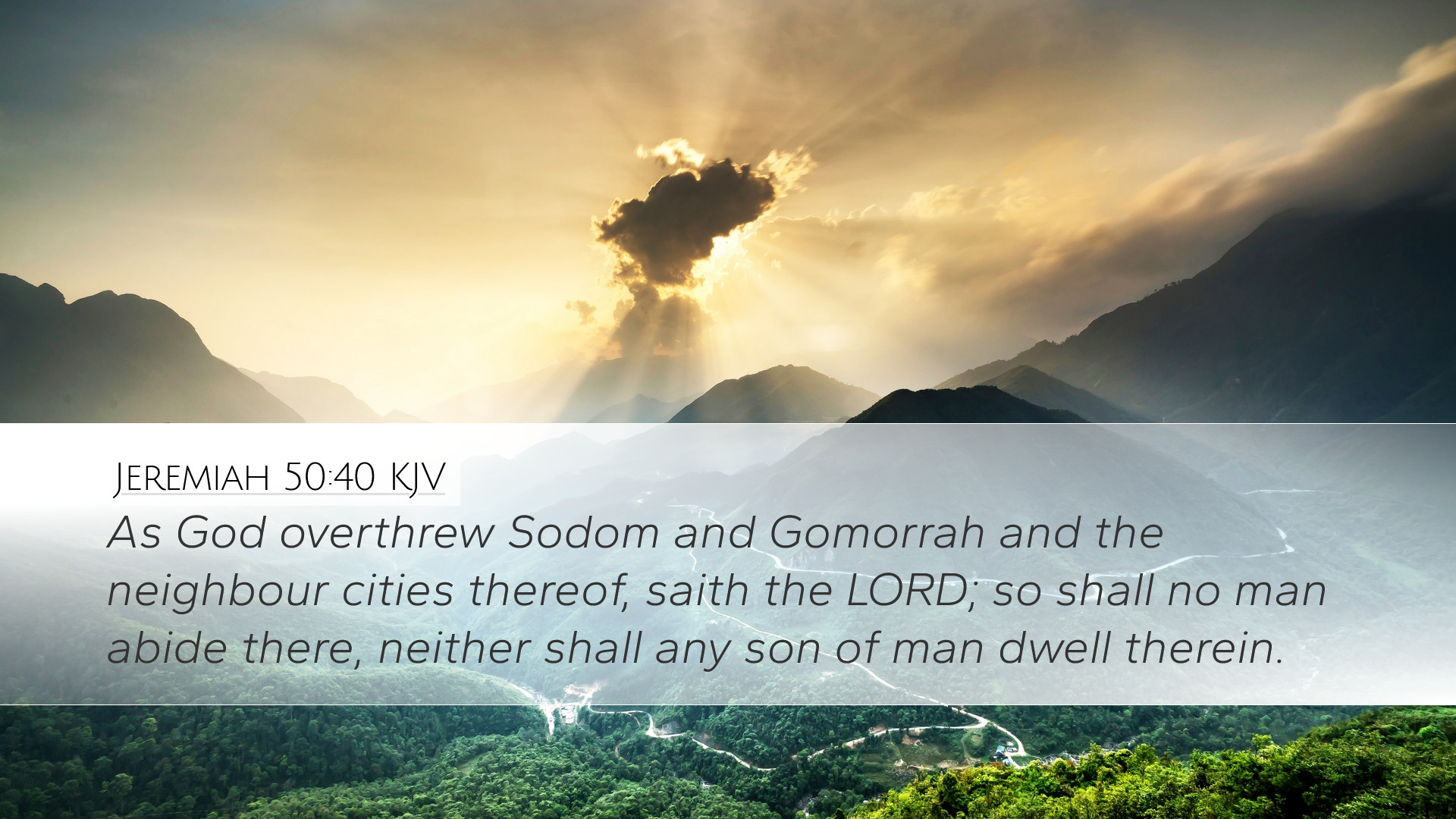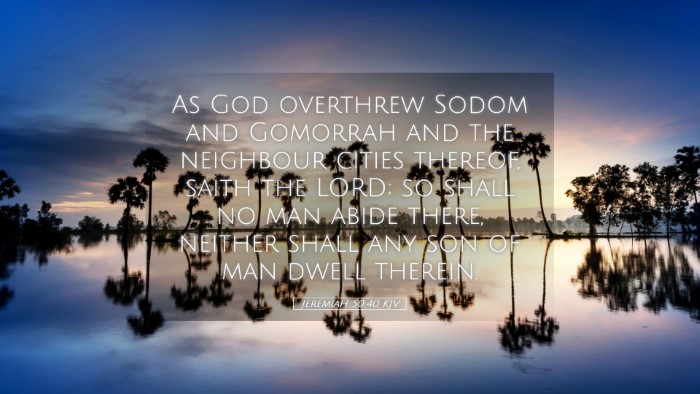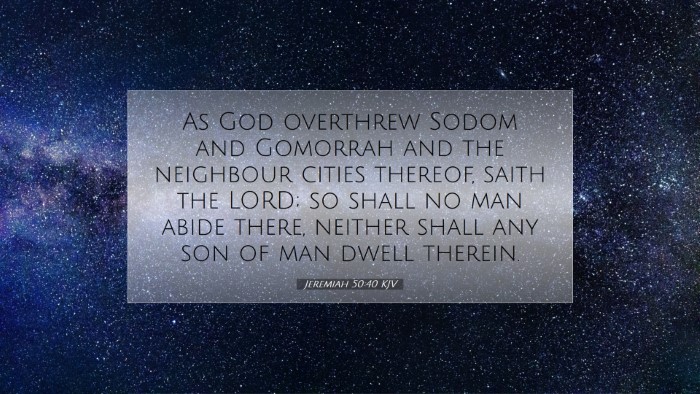Commentary on Jeremiah 50:40
Jeremiah 50:40 (KJV): "As God overthrew Sodom and Gomorrah and the neighbor cities thereof, saith the Lord; so shall no man abide there, neither shall any man dwell therein."
Introduction
This verse is a significant proclamation concerning the impending judgment on Babylon, drawing parallels with the destructions of Sodom and Gomorrah. The prophetic narrative in the book of Jeremiah unveils God's judgment not only upon His people for their transgressions but also upon the nations that stand against Him. The commentary from various public domain sources elucidates the profundity of this verse, offering layers of theological significance for pastors, students, and theologians.
Contextual Background
The context of Jeremiah 50 speaks to the end of Babylonian dominance and the call for Israel to return from exile. The prophet Jeremiah delivers these oracles during a time of national crisis for Judah, offering hope amid despair and warning against complacency and the allure of foreign powers. Understanding the historical and socio-political backdrop enriches the interpretation of this passaged.
Theological Insights
- Divine Judgment: Commentators like Matthew Henry emphasize that God's judgment is deterministic and inevitable. The reference to Sodom and Gomorrah serves as a sober reminder of the consequences of sin. Just as those cities met their fate due to rampant immorality, so too will Babylon face the wrath of God for its pride and idolatry.
- The Nature of God: Albert Barnes discusses the immutable nature of God, stating that God's holiness compels Him to judge sin. The destruction of Babylon reflects God's unwillingness to tolerate sin indefinitely, reaffirming His sovereignty over nations and history.
- Hope for Restoration: Despite the dire warning of judgment, Adam Clarke notes that there is an implicit promise of deliverance for God's people. The destruction of their oppressors paves the way for Israel's restoration, symbolizing that divine judgment also serves redemptive purposes.
Comparative Analysis
In comparing the events of Sodom and Gomorrah to Babylon's impending downfall, it is crucial to examine the specific characteristics of both judgments. The recurring theme throughout Scripture emphasizes that God is just and does not act without cause.
- Moral Corruption: Both Sodom and Babylon are characterized by profound moral decay and idolatry, indicative of societies that have turned away from the worship of the true God. This correlation underlines a significant biblical principle: nations that forsake God’s standards will face His judgment.
- Irreversibility of Judgment: Just as Sodom and Gomorrah were destroyed without restoration, Babylon's fate is sealed. The phrase "no man shall abide there" (as noted by Barnes) suggests a complete and utter desolation, reinforcing the totality of divine retribution.
Practical Applications
This verse serves as a stark reminder for contemporary readers regarding the nature of God's judgment and the seriousness of turning away from Him:
- Call to Righteousness: For pastors and leaders, there is a clear mandate to preach righteousness and impart the urgency of repentance. The fate of Sodom and Babylon warns that societies that embrace unrighteousness cannot expect God’s blessing.
- Encouragement for Believers: For students and laypersons, there is comfort in knowing that while judgment comes, God is also a God of restoration. This dual aspect encourages believers to remain steadfast in faith and hope.
- Awareness of Cultural Influences: The relevance of Jeremiah 50:40 challenges modern Christians to critically engage with culture and ensure that their values align with biblical truth, avoiding the fate of those who stray into moral and spiritual corruption.
Conclusion
Jeremiah 50:40 invokes a powerful reminder of God’s nature as both just and merciful. It warns against complacency and outlines the serious implications of sin while simultaneously offering the hope of restoration. Studying this verse through the lenses of various commentaries allows readers to grasp the intricate dynamics of divine justice and mercy while encouraging deeper reflection on personal and corporate accountability in faith.


